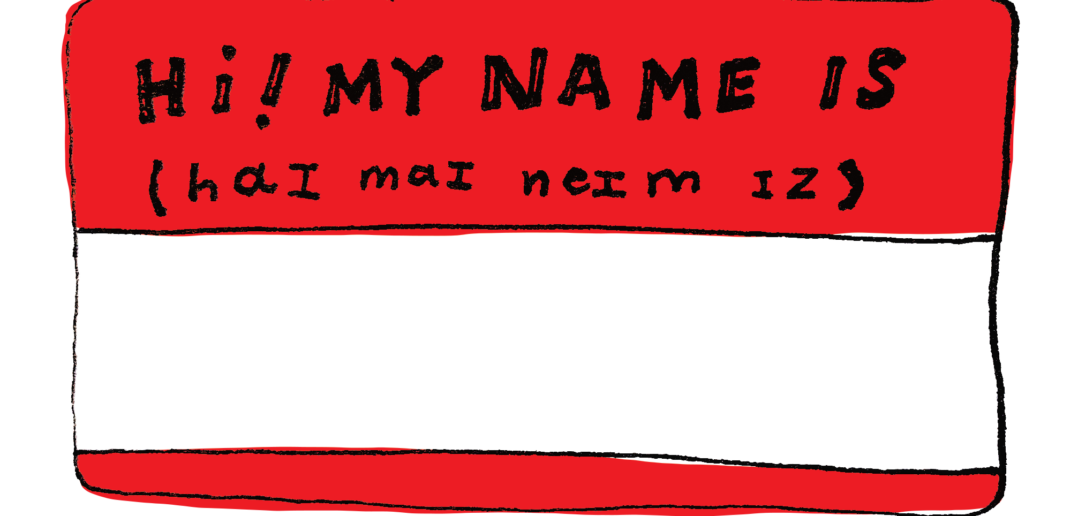Knowing someone’s name, and how to pronounce it, isn’t just polite—it tells them that they belong.
Since beginning his tenure as the inaugural assistant dean for student affairs, learning environment, Dean Merritt has found issues related to learner mistreatment frequently center around student names. Our medical students are resilient, but after the umpteenth time an educator inadvertently mispronounces their name, a student begins to question if they belong in the learning environment. Feeling or being excluded negatively impacts learning. While not remembering a student’s name, accidentally misidentifying a student, or mispronouncing someone’s name is not necessarily mistreatment, the impact is often the same: the student is devalued and less engaged in learning.
Having a mispronounced name is familiar territory for Dean Garcia. As a native Dominican, he never considered his name hard to pronounce until reaching higher academia, where he frequently encounters name-based microaggressions. In this setting, he’s been called a list of names too long to remember. He notes his name, Dioscaris, has cultural significance—representing his family’s history. He also points out that it’s a well-known “inside joke” among immigrants that our given name at birth is often not the same as our name in our professional lives. Although we recognize that pronunciation of foreign names can be as challenging as learning a new language, it is also essential to highlight the importance of attempting correct pronunciation.
Misidentifying an individual is another common occurrence that negatively impacts the learning environment. This can involve either mixing up two individuals or misattributing role-based identities (for example, assuming a woman-identifying student is a nurse). Such errors can often result from unintentional bias or racism. Transgender, non-binary, and gender-diverse students are often misgendered despite their best efforts to establish their correct names and pronouns.
To help prevent name- and identity-based microaggressions, the Program for a Healthy Learning Environment in the Office of Student Affairs and the Center for Student Belonging in the Office of Belonging, Equity, Diversity, and Inclusion launched the “My Name Is” Campaign. The campaign will raise awareness of the importance of pronouncing names correctly, using a student’s preferred name and pronouns, and correctly identifying students. It also provides guidance on how to avoid making mistakes that may harm others.
Our first piece of advice is to make every effort to use the name a student introduces themselves with, rather than assigning a nickname or avoiding using their name for fear of making mistakes. We recommend slowing down, carefully verifying identities, listening closely when folks identify themselves, and getting to know students as individuals whenever possible.
When it comes to gender identities, the Medical School has provided all students the option of displaying their pronouns along with their names on hospital ID badges. Student pronouns are also provided on official evaluation forms and, often, in email signatures. If an error occurs, we recommend a quick, sincere apology and to avoid misgendering the person in the future.
Over the coming months, the “My Name Is” Campaign will highlight the meanings and proper pronunciations of the names of some Medical School community members, with the goal of providing perspectives of those who have been misnamed. This campaign hopes to empower those who have been misnamed, misidentified, or misgendered to educate others. Learn more—including easy tips for success.
While we are enacting this campaign with learners in mind, these considerations and actions can apply in any situation—with colleagues, patients, anyone you meet. After all, the sense of belonging within an environment is a significant factor in creating a healthy community of learners, fostering investment in a shared mission, and recognizing our individual humanity.




